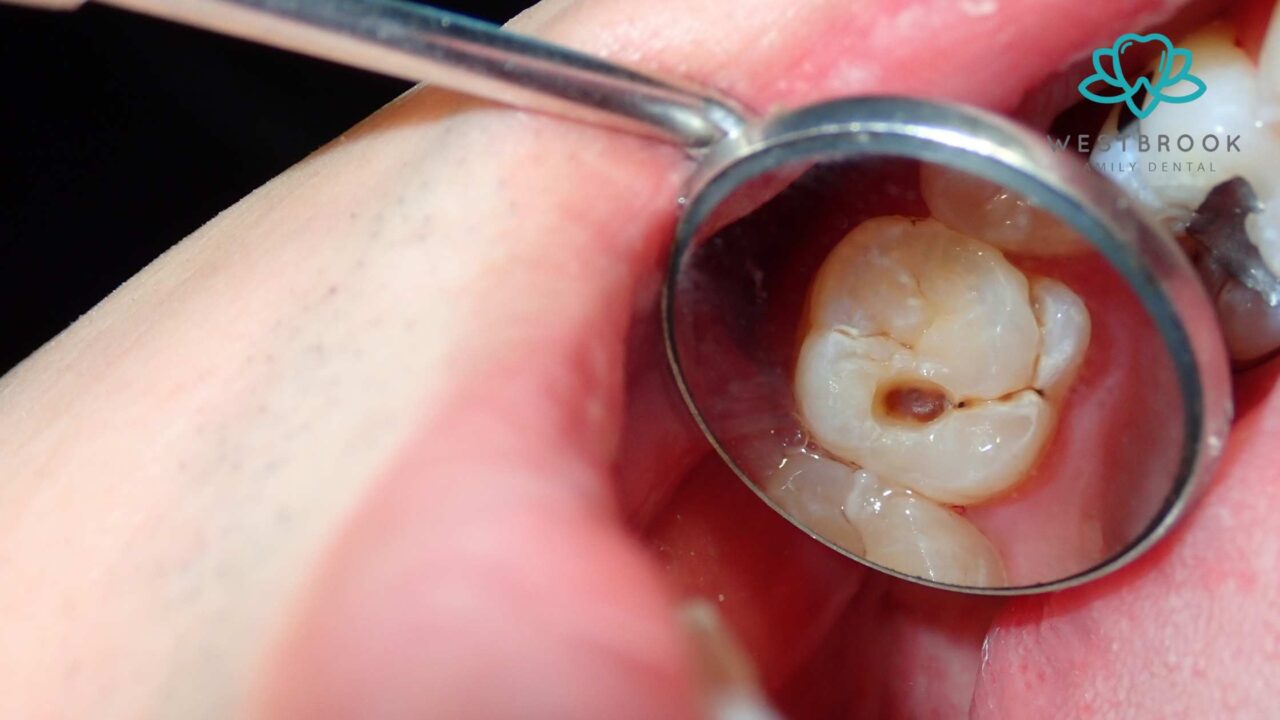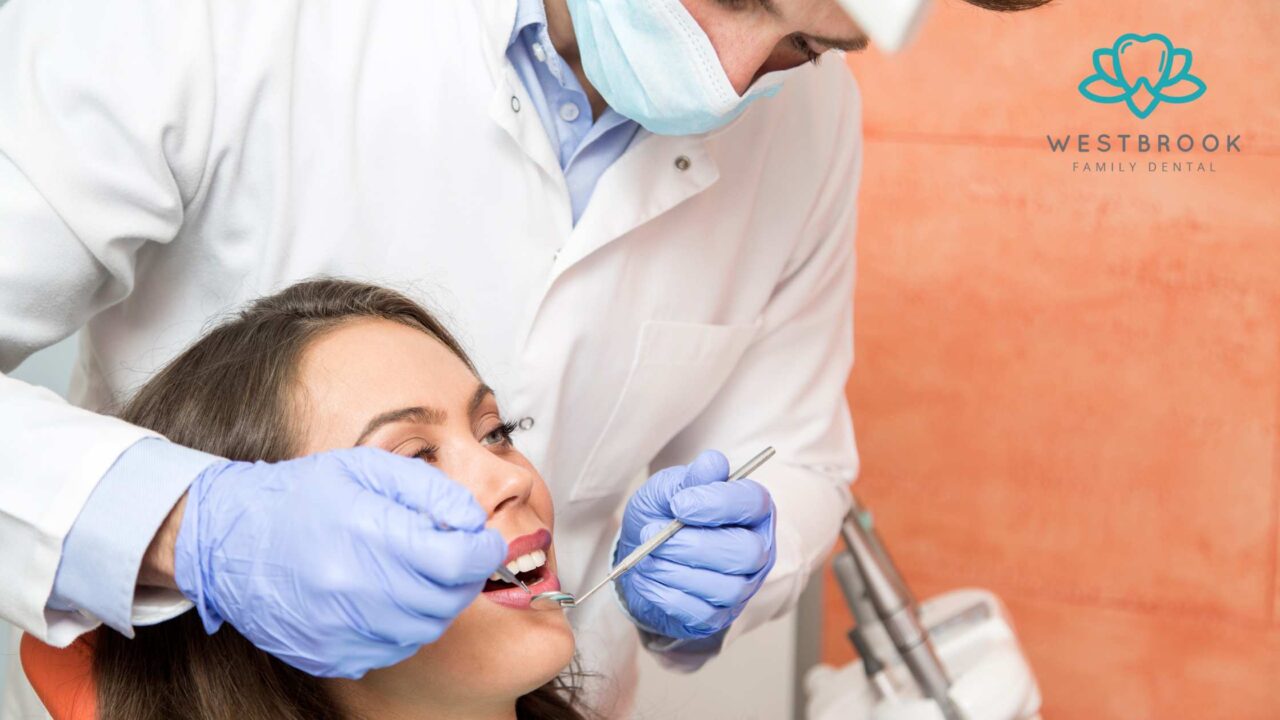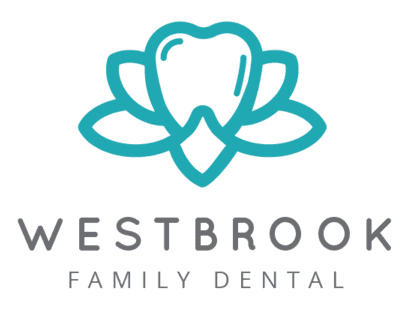At Westbrook Family Dental, located in Toowoomba, we understand the concern when you chip a tooth. While a chipped tooth may seem like a minor cosmetic issue, it could potentially lead to more serious dental problems. But how do you know if your chipped tooth requires urgent attention, and what could happen if it’s left untreated? Let’s explore these questions in detail.
1. What Causes a Chipped Tooth?

A chipped tooth can happen unexpectedly during everyday activities or due to an accident. While the tooth enamel is incredibly strong, it’s not invincible. Here are some common causes:
- Biting Hard Objects: Crunching ice, chewing on hard candy, or biting on tough foods like nuts can crack the enamel.
- Accidents or Trauma: Falls, sports injuries, or car accidents often cause direct impact to the mouth, leading to chipped teeth.
- Grinding Teeth (Bruxism): People who grind their teeth, especially at night, are more prone to enamel wear and chipped teeth.
- Tooth Decay: Weakened teeth due to decay or cavities are more susceptible to chipping.
If you’re worried about biting into something hard or an accidental injury, it’s essential to be mindful of your oral health habits. Explore more on how we manage chipped teeth at Westbrook Family Dental.
2. Can a Chipped Tooth Lead to Bigger Dental Problems?
While a chipped tooth may seem harmless, ignoring it can lead to several complications. Here’s what you should know:
Risk of Infection
When a tooth chips, the protective enamel layer is compromised, exposing the dentin or even the inner pulp. This exposure creates a risk of bacteria entering the tooth, leading to infections. If untreated, the infection could result in:
- Tooth abscess
- Gum disease
- Serious oral health complications
If you experience swelling, pain, or a bad taste in your mouth after chipping a tooth, contact Westbrook Family Dental immediately to prevent infection.
Weakened Tooth Structure
A chipped tooth weakens the overall structure of the tooth, making it more prone to further damage. This could mean:
- Fractures or larger breaks in the future
- Difficulty chewing or biting properly
- Higher risk of losing the tooth if left untreated
Addressing a small chip early could prevent more serious problems down the line.
Tooth Sensitivity
Another common issue following a chipped tooth is increased sensitivity to hot, cold, or sweet foods. The inner layers of the tooth become more exposed, which can make eating or drinking uncomfortable. Persistent sensitivity can also signal more significant dental problems that need attention
3. Symptoms to Watch for After a Chipped Tooth

It’s important to monitor the health of your tooth after chipping it. Look for these warning signs that could indicate the need for dental intervention:
- Increased sensitivity to temperature or pressure
- Swelling or redness around the affected tooth
- Pain when biting down
- Visible cracks or further damage
Even if your chipped tooth doesn’t hurt right away, it’s still a good idea to schedule an appointment at Westbrook Family Dental. Early detection and treatment can prevent further damage.
4. Treatment Options for a Chipped Tooth

There are several ways to repair a chipped tooth, depending on the severity of the damage. At Westbrook Family Dental, we offer the following treatment options:
Dental Bonding
For minor chips, dental bonding is often the most effective solution. This procedure involves applying a tooth-colored resin to the chipped area and shaping it to restore the tooth’s appearance. Bonding is:
- Quick and non-invasive
- Cost-effective
- Ideal for small chips
Dental Veneers
If the chipped tooth is more visible, especially in the front teeth, veneers may be a better option. A veneer is a thin porcelain shell that covers the entire front of the tooth, hiding the chip and improving the tooth’s appearance. Veneers are:
- Durable
- Aesthetic
- Best for visible teeth
Crowns
For larger chips or weakened teeth, a dental crown may be necessary. Crowns are caps that cover the entire tooth, providing strength and restoring functionality. They are often used for:
- Severely damaged teeth
- Post-root canal treatment
- Teeth that have extensive decay
If you’re unsure which treatment is right for you, we recommend scheduling a consultation at Westbrook Family Dental to explore your options.
5. Preventive Measures to Avoid a Chipped Tooth
Preventing a chipped tooth is often easier than repairing one. Consider these steps to minimize the risk:
- Avoid biting into hard objects like ice, bones, or non-food items (pens, nails, etc.).
- Wear a mouthguard if you participate in contact sports or grind your teeth at night.
- Maintain good oral hygiene to prevent decay and strengthen enamel.
- Regular dental checkups to identify potential issues before they become serious.
At Westbrook Family Dental, we offer custom-made mouthguards to help protect your teeth from injury during sports or from nighttime grinding
6. Why You Should Seek Immediate Dental Care

If you have a chipped tooth, seeking immediate dental care can save your tooth and prevent further complications. Here’s why:
- Timely repairs prevent infection and stop the damage from worsening.
- Early intervention ensures that minor issues don’t develop into expensive, extensive treatments.
- Cosmetic improvements will restore your smile and boost your confidence.
Delaying treatment could result in needing more complex procedures like root canals or extractions. If you’ve chipped a tooth, visit Westbrook Family Dental as soon as possible for expert care.
7. Why Choose Westbrook Family Dental for Chipped Tooth Treatment?
At Westbrook Family Dental, we are committed to providing high-quality, personalized dental care. Here’s why you should trust us with your chipped tooth treatment:
Expert Care and Personalized Treatment Plans
Our team of experienced dentists uses the latest dental technology to provide effective and painless solutions for chipped teeth. Whether you need bonding, veneers, or crowns, we customize our treatment plans to suit your unique needs.
Comfortable and Modern Environment
We understand that dental visits can be daunting. That’s why our clinic is designed to offer a relaxing, comfortable environment. Our friendly staff is here to answer any questions and make your experience as stress-free as possible.
Conclusion
A chipped tooth may seem like a small issue, but it can lead to bigger dental problems if ignored. From infections to weakened tooth structure, the risks are real. By addressing the issue early, you can prevent more serious complications. If you’ve chipped a tooth, don’t wait—visit Westbrook Family Dental today for a consultation.
FAQs About Chipped Teeth
Q: What should I do if I chip a tooth?
A: If you chip a tooth, it’s important to see a dentist as soon as possible. They can assess the damage and determine the best treatment, which may include a dental filling or a dental crown.
Q: Can a chipped tooth lead to bigger dental issues?
A: Yes, a chipped tooth can lead to bigger issues if left untreated. It may cause further damage to the tooth, leading to cracked teeth or even requiring root canal treatment if the damage reaches inside the tooth.
Q: What are the symptoms of a chipped tooth?
A: Symptoms of a chipped tooth can include pain, sensitivity to temperature changes, and visible damage to the surface of the tooth. If you notice any of these symptoms, it’s advisable to see a dentist.
Q: How can a dentist fix a chipped tooth?
A: A dentist may fix a chipped tooth using various methods, including dental fillings, dental crowns, or veneers, depending on the extent of the damage and the tooth’s location.
Q: What happens if I leave a chipped tooth untreated?
A: Leaving a chipped tooth untreated can lead to further complications, such as increased pain, infection, or even tooth loss. It’s crucial to seek dental care to prevent these issues.
Q: Is it possible to fix a chipped tooth at home?
A: While there are temporary measures you can take at home, such as using dental wax to cover sharp edges, it’s essential to see a dentist for proper repair of a chipped or broken tooth.
Q: Can a chipped tooth affect my overall dental health?
A: Yes, a chipped tooth can affect your overall dental health by increasing the risk of further damage, leading to other dental issues like cracked teeth or infections if not treated promptly.
Q: What types of dental procedures are available for a broken tooth repair?
A: Dental procedures for broken tooth repair can include dental fillings, dental crowns for significant damage, and root canal treatment if the inside of the tooth is affected.
Q: How does a dental crown help with a chipped tooth?
A: A dental crown helps protect a chipped tooth by covering and supporting the remaining part of the tooth, preventing further damage and restoring its function and appearance.
Q: Can a chipped tooth cause pain or discomfort?
A: Yes, a chipped tooth can cause pain or discomfort, especially if the chip exposes sensitive areas of the tooth or if it leads to further complications like cracked teeth.



